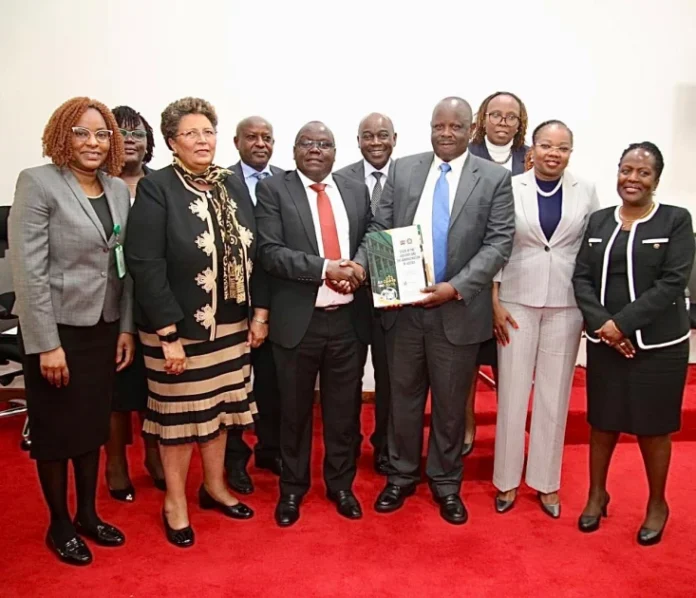Members of Parliament have urged the Judiciary to accelerate the delivery of justice, citing increasing public frustration over lengthy delays, inadequate court infrastructure, and growing case backlogs.
During a high-level meeting between the Judicial Service Commission (JSC) and the Constitutional Implementation Oversight Committee (CIOC), lawmakers expressed concern that slow judicial processes are eroding public trust in the justice system.
“How is it that the earliest judgment one can expect takes four or five years?” asked Nambale MP Geoffrey Mulanya. “Quick access to justice isn’t a luxury, it’s a constitutional right.”
The MPs highlighted systemic issues, including the long distances citizens must travel to access courts, especially in rural areas. Mwingi West MP Charles Nguna stressed the need for a court in every constituency, stating, “Justice must be brought closer to the people.”
Representing the JSC, Lady Justice Fatuma Sichale disclosed that the Judiciary is currently grappling with a backlog of over 257,000 cases. She noted that only nine Court of Appeal benches are currently operational, resulting in appeal cases taking an average of five years to conclude.
“We are working on establishing 15 more benches,” Justice Sichale said. “But the main challenge remains funding. Judiciary receives less than 1% of the national budget, which is grossly inadequate.”
To address these challenges, the JSC has rolled out 14 prototype courts, part of a broader effort to decentralize judicial services. However, staffing and equipping these new courts remains a hurdle.
Suba South MP Caroli Omondi criticized what he termed “intentional delays, questionable transfers, and a lack of transparency,” which he said contribute to public disillusionment. “We need clear judicial performance metrics and accountability. This is about restoring trust.”
MPs also called for reforms to address succession disputes and unexplained transfers of cases to far-flung jurisdictions. “Why should a case be filed in Kisumu when the complainant resides in Nairobi?” asked MP Mulanya. “We need an urgent policy to address this.”
Chief Registrar of the Judiciary Winfridah Mokaya acknowledged the concerns but emphasized institutional constraints. “The JSC can only recommend the removal of a judge. We cannot sanction minor infractions or enforce pending proposals,” she said, also citing tensions between arms of government that delay critical appointments.
In a joint commitment, both the Judiciary and Parliament agreed to pursue lasting reforms through innovation, resource mobilization, and legislative cooperation to ensure faster, fairer, and more accessible justice for all Kenyans.
Written By Rodney Mbua



















